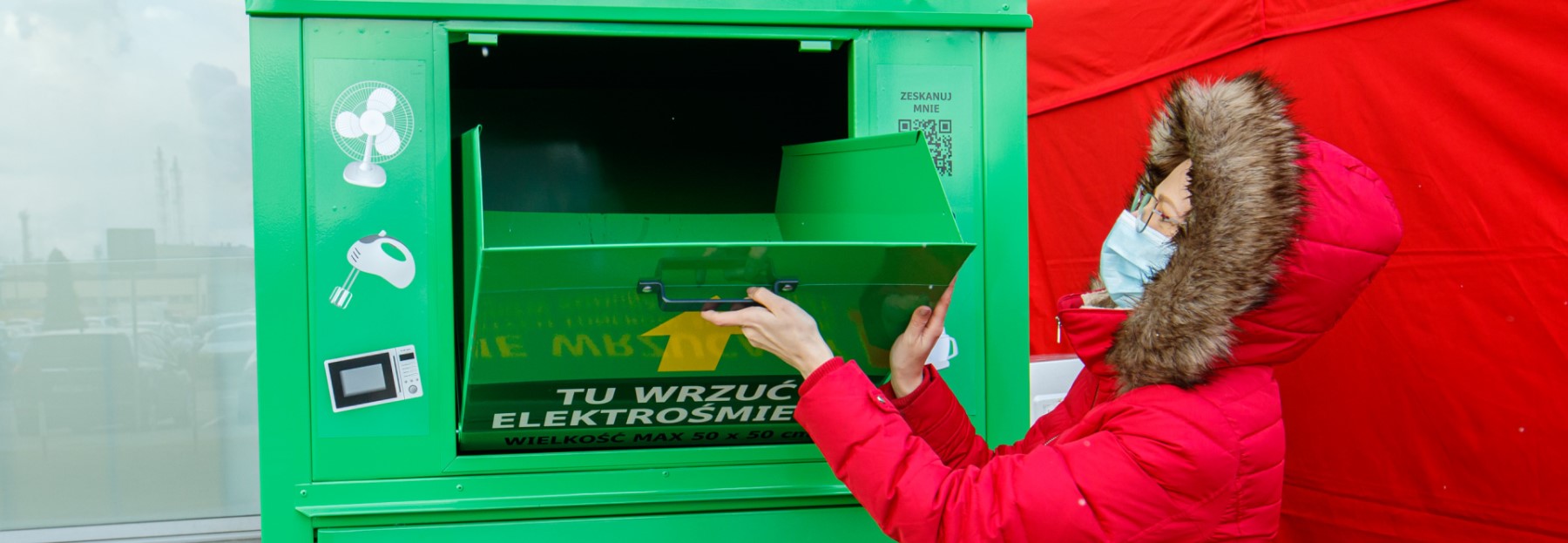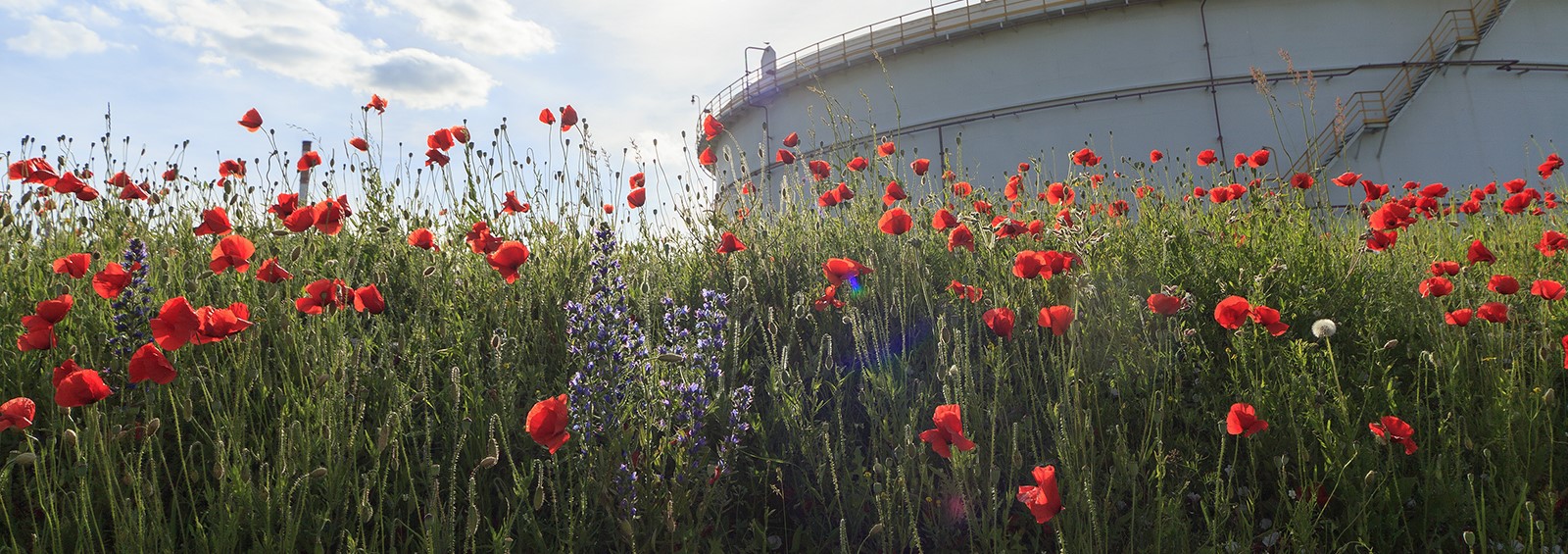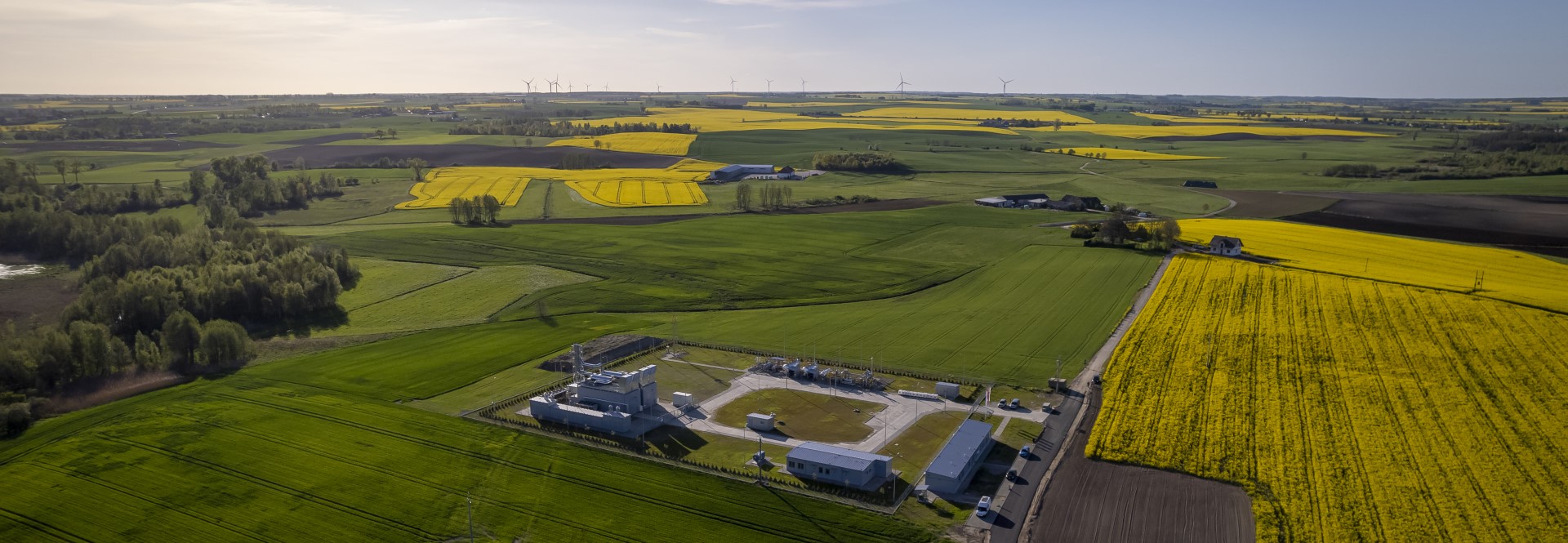The Group complies with the Basel Convention, which means that it operates in accordance with the Convention as well as the EU legislation on cross-border transport of waste.
Waste
The Group is implementing a circular economy programme. To this end, it is consolidating ORLEN Group’s operations related to waste recycling and waste processing into high-margin products and energy, for instance by implementing a polymer recycling technology with an installed capacity of 300,000 tonnes by 2030.

-
103-1
-
103-2
-
103-3
Projects under the programme are being executed in Poland and the Czech Republic, in the areas of petrochemical production, alternative energy sources and retail, and work is under way to analyse further possibilities of expanding the programme to other areas or product groups. The analysis focuses on all elements of the plastic life cycle – from its production at own units, through to packaging of proprietary brand products offered at service stations, to selective collection of waste generated for example at ORLEN service stations and its recycling.
PKN ORLEN engages in various projects and programmes designed to utilise alternative and waste materials.
These include:
- PIGOZ – a project to increase the use of waste materials in the circular economy system, which focuses on recycling and reuse of plastic materials;
- COMBO – comprehensive management of all municipal waste types by implementing appropriately scaled technologies that take into account the morphological structure of the waste. The following processes are being considered as part of the project:
- pyrolysis of plastic as feedstock for refining and petrochemical processes;
- thermal treatment of waste, e.g. gasification to produce hydrogen or generate electricity;
- biogas plants using biogas to generate electricity or as biofuel (biohydrogen).
In addition to reducing the amount of landfilled waste, the circular economy and materials recycling have another important effect from the point of view of economic growth: they improve production efficiency.
In a world where demand and competition for resources are already steadily growing, leading to resource depletion and soaring commodity prices, there are economic and environmental benefits to be gained from more efficient resource management.
As the environmental and climate awareness of the public is rising, it is easier to implement products based on technologies that reduce the environmental footprint, such as new low-carbon products and technologies with a lower overall environmental impact.
The initiatives planned as part of the circular economy programme also have a significant decarbonisation potential since plastics recycling, both mechanical and chemical, is a way to save significant amounts of energy and raw materials used in the manufacturing process.
Circular economy aspects have been implemented in some of PKN ORLEN’s processes. The flue gas desulfurisation unit operated in Płock not only helps reduce emissions but also delivers high quality synthetic gypsum, which has been recognised as a product in its own right. Production of gypsum helps protect its natural resources. In 2021, the gypsum output was 110,000 tonnes.
ORLEN Południe is Poland’s only company that operates a specialist hydrogenation line, enabling safe regeneration of waste oils into base oils used to make lubricating oils. The process is a model example of a circular economy solution. In 2021, 47,000 tons of oils and lubricants were recovered using the waste oil regeneration unit. Moreover, waste in the form of used edible oils and fats is recovered at ORLEN Południe in the process of ester and glycerine production. In 2021, a total of 15,500 tonnes of used cooking oils were processed into high-quality methyl esters (biodiesel) and distilled glycerine.
Waste
-
306-1
-
306-2
Waste generated by the ORLEN Group includes primarily waste from processing of crude oil, production of organic chemicals and fuel combustion, as well as sludge from treatment of industrial wastewater, waste oils and post-repair waste.
The total volume of waste other than municipal waste generated in 2021 by the Group companies exceeded 295,700 Mg. The largest volumes were generated by Energa Group companies: more than 116,800 Mg, including over 114,900 thousand Mg of non-hazardous waste. Of the total waste volumes generated last year, 229,000 Mg was transferred to third parties for recovery or disposal, while 1,1 Mg was transferred to licensed collection companies within the ORLEN Group. Group companies recovered almost 86,000 Mg of waste generated internally and collected from third parties, and disposed of almost 120,500 Mg of waste in their own facilities. In 2021, 20,200 Mg of waste was landfilled.
Waste generated by the ORLEN Group includes primarily waste from processing of crude oil, production of organic chemicals and fuel combustion, as well as sludge from treatment of industrial wastewater, waste oils and post-repair waste.
Data on the amounts of generated hazardous and non-hazardous waste is presented below.
Waste volumes generated at ORLEN Group companies
| Waste type [Mg] | Waste volumes generated in each year [Mg] | Change [%] | |
|---|---|---|---|
| 2021 | 2020 | ||
| Hazardous waste | 74,957 | 81,295 | -7.80 |
| Non-hazardous waste | 220,753 | 210,341 | 4.95 |
| Total | 295,710 | 291,636 | 1.40 |
Waste disposal methods
-
306-5
ORLEN Group companies manage their own waste produced in connection with their operations as well as waste accepted from waste generators from outside the Group. The waste is subjected to recovery and disposal processes at the Group’s own facilities. Waste that cannot be managed using the Group’s facilities is transferred to licenced third-party operators (companies from outside the Group). Waste that could not be managed on an ongoing basis or transferred to other operators was landfilled (it can be stored for strictly limited period of time).
|
Waste disposal methods |
Hazardous waste [Mg] |
Non-hazardous waste [Mg] | |
|---|---|---|---|
| Waste recovered | at own facilities | 64,598 | 21,470 |
|
Waste disposed of
|
at own facilities | 2,858 | 578 |
| thermally treated at own facilities | 24,394 | 12,406 | |
| landfilled in own landfills | 2,548 | 77,698 | |
| Total | 29,800 | 90,682 | |
| Waste landfilled | 7,482 | 12,763 | |
| Waste transferred to third parties | 34,319 | 194,691 | |
| Total | 136,199 | 319,606 | |
The largest volumes of the recovered waste were oils recovered using the waste oil regeneration unit at ORLEN Południe. Waste in the form of used edible oils and fats is recovered at ORLEN Południe in the process of ester and glycerine production.
Additionally, Ship-Service operates recovery and disposal processes in its liquid petroleum waste recovery and disposal unit.
Thermal processing of waste takes place mainly in the hazardous waste thermal treatment facility operated by ORLEN Eko. The facility is also used to treat waste received from third parties. Furthermore, internally-generated waste is recovered and disposed of at the ORLEN Group’s own production units, including the terephthalic acid production unit at PKN ORLEN, the unit for hydrogen chloride recovery from organic chloride waste at ANWIL, and wastewater treatment plants of ORLEN Lietuva.
The landfills of Energa, ORLEN Eko and Spolana received a total of 80,200 Mg of waste.


Cross-border transport of waste
-
306-4
Such transport involves designated border crossing points and designated customs offices. For waste to be exported, the ORLEN Group makes the required notifications or obtains the necessary decisions. In 2021, 3,7%, i.e. 1,0 847 Mg of generated waste, including 7,835 Mg of hazardous waste (spent catalysts), was transported to other countries.

